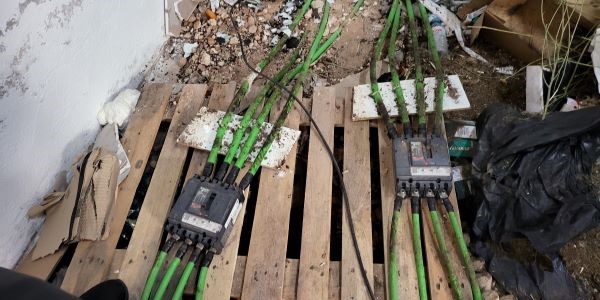UFD, the Naturgy group electricity distributor, maintains its offensive against electricity fraud with the aim of preventing the risk that illegal connections imply for the safety of people and, additionally, to reduce the cost to other consumers, who see their electricity bill increase.
In 2024, UFD carried out more than 41,600 actions in its distribution areas (Galicia, Madrid, Castilla-La Mancha and Castilla y León). The company has thus managed to recover more than 133 GWh of fraudulently consumed energy, an amount equivalent to the annual consumption of 41,800 homes.
Actions taken by UFD resulted in 12,140 fraud cases being opened in all the regions in which it operates. Madrid registered the highest number of cases, with a total of 5,175, followed by Castilla-La Mancha (3,384), Galicia (3,191) and Castilla y León (390).
These actions also made it possible to intercept and recover the electricity fraudulently consumed by 155 indoor devices, the vast majority of which were linked to marijuana plantations. These installations illegally consumed an annual amount of 3.7 GWh, equivalent to the energy demand of about 1,150 homes.
Impact of electricity fraud on the bills of all consumers
Electricity fraud represents an economic loss for the electricity system since, under current regulations, the cost of defrauded energy ends up being borne by all users legally connected to the grid. According to some estimates, this cost could be in the region of 2 billion euros per year.
Such illegal actions can cause fires and other accidents, and put at risk both the person who carries them out and those who live with them and their neighbours. For this reason, the company is immersed in a plan to detect and disconnect fraudulent connections and meter manipulation in all the territories in which it operates”, explains Mónica Puente, Director of Electricity Networks at Naturgy in Spain.
Fraudulent connections to the UFD network grew by 28% between 2008 and 2013, following the onset of the economic crisis. Since the pandemic began in March 2020, this practice has increased at an even higher rate than the aforementioned period, leading to an increase in detected fraud of around 300% since 2021.
Irregular manipulation of electrical installations is an offence under Article 255 of the Penal Code. The legislation establishes that distribution companies have the role of detecting and informing the authorities and customers of situations of fraud in the grid and in metering equipment, and empowers them to interrupt supply when they detect anomalous situations.
UFD provides consumers with an anonymous complaint channel on its website https://www.ufd.es/denuncia-de-irregularidades/ to receive information about any suspicion of illegal connection to the electricity grid or meter tampering.
UFD in figures
Naturgy’s electricity distributor is present in Castilla-La Mancha, Castilla y León, Madrid and Galicia, where it is the largest electricity distributor. It currently serves 3.8 million supply points with a network of 116,000 kilometres of high, medium and low voltage lines, maintaining and operating the networks with a commitment to ensuring service under conditions of efficiency, safety and quality.
In 2024, UFD invested 441 million euros in the digitalisation and improvement of its network in Spain and, in 2025, the company will maintain a high rate of investment, prioritising innovation and the digitalisation of distribution networks as a fundamental part of the energy transition towards a decarbonised model. To 2028, the planned investment is 1.33 billion euros. It will also continue to evolve its Digital Service Platform (https://www.ufd.es) as a space where users can complete all their formalities on any device, anytime and anywhere, as the primary point of contract amongst the different agents in the electricity system.
Naturgy’s electricity distributor maintains a strong commitment to society and the economic development of the regions where it operates by making a significant contribution to the regional economy. It considers sustainability and the environment fundamental cornerstones for creating economic, environmental and social value in the short and long term.
